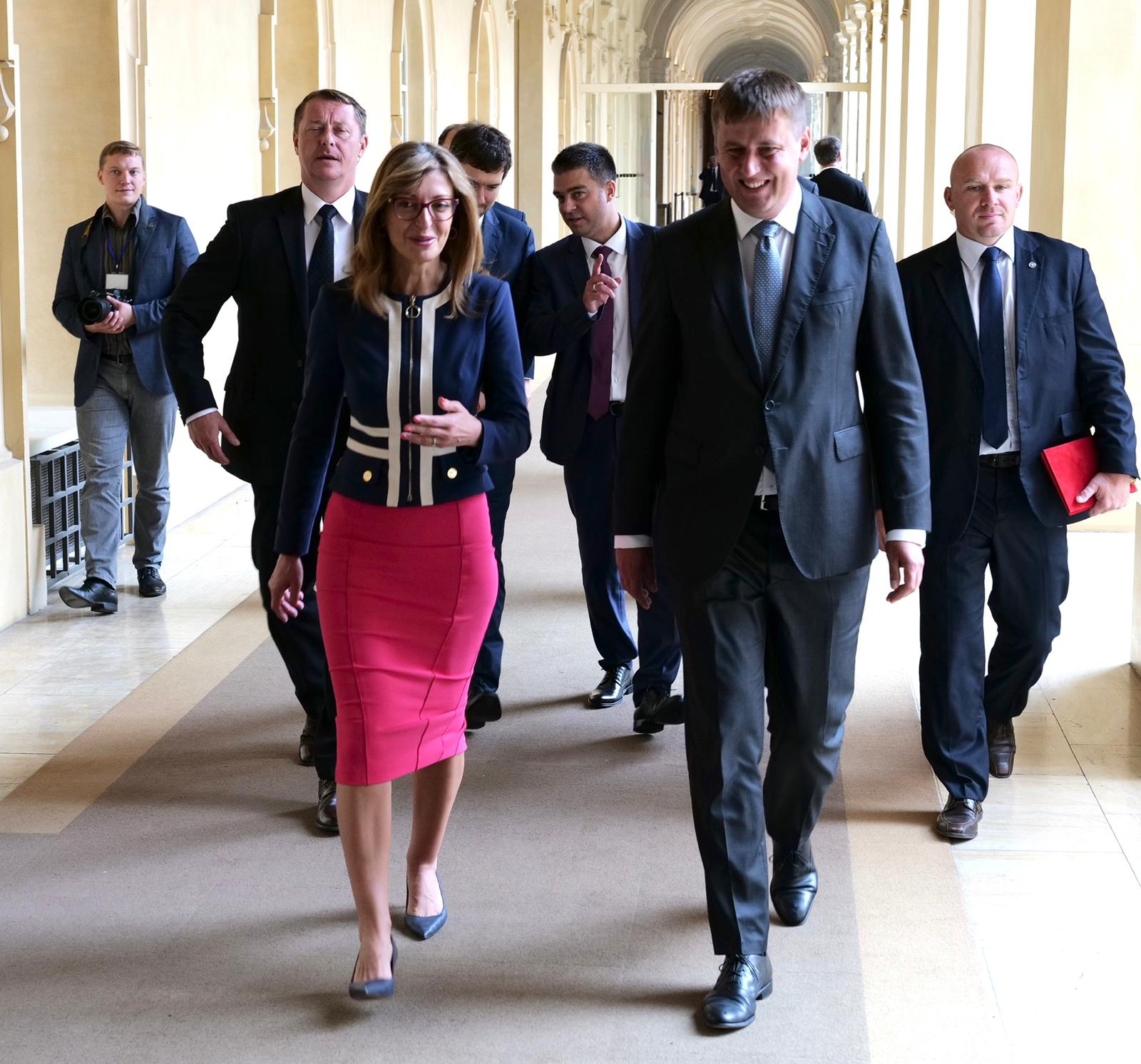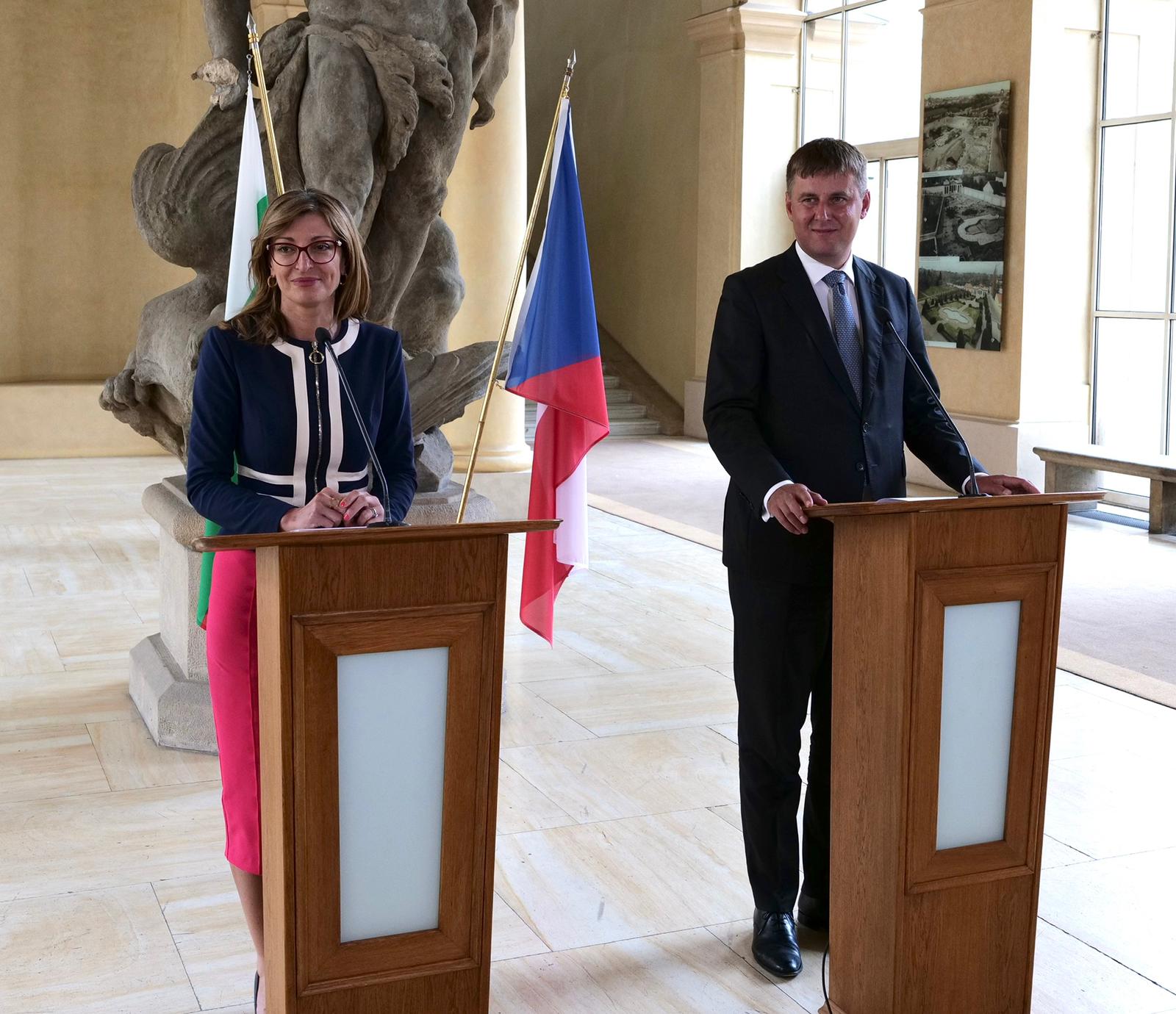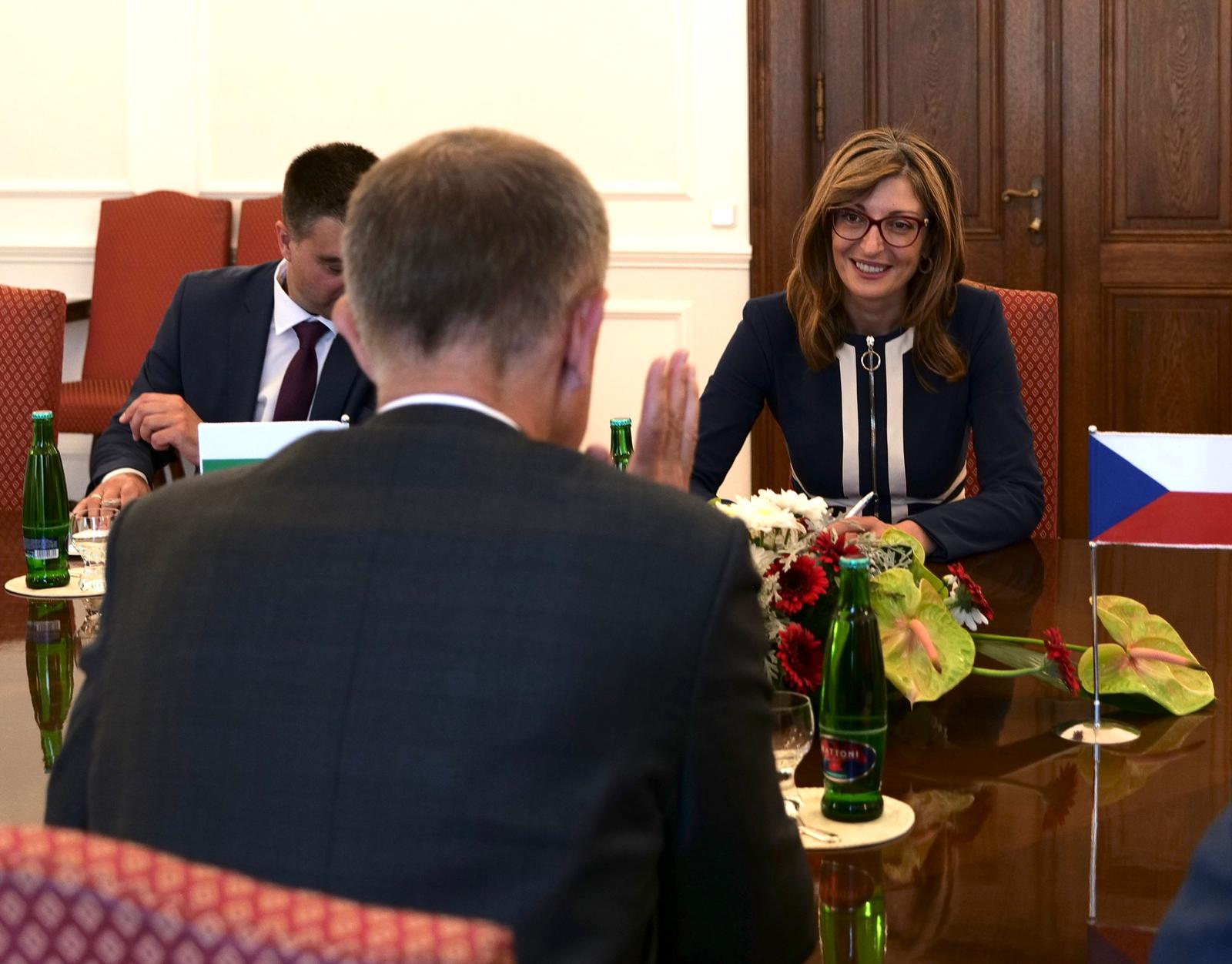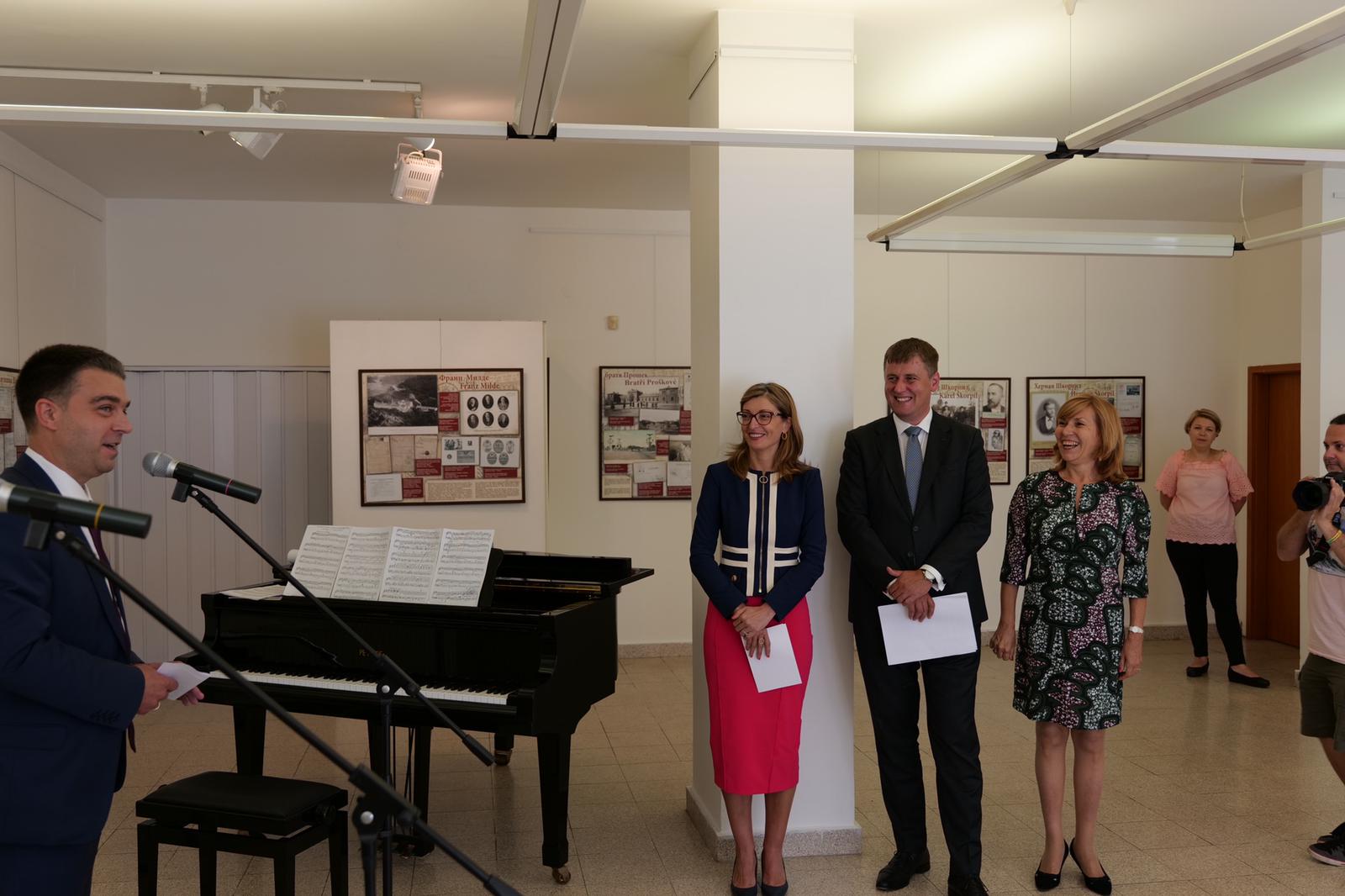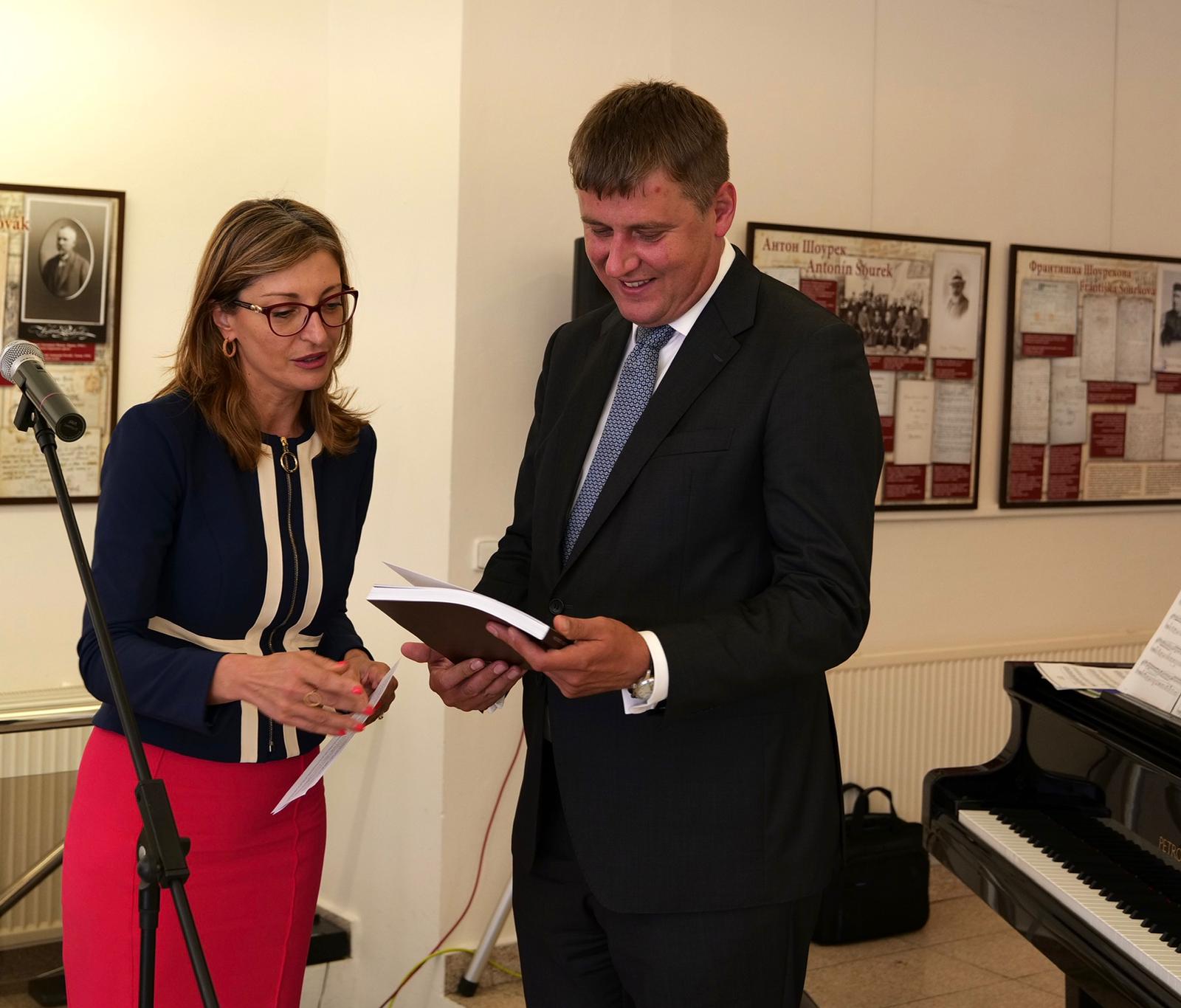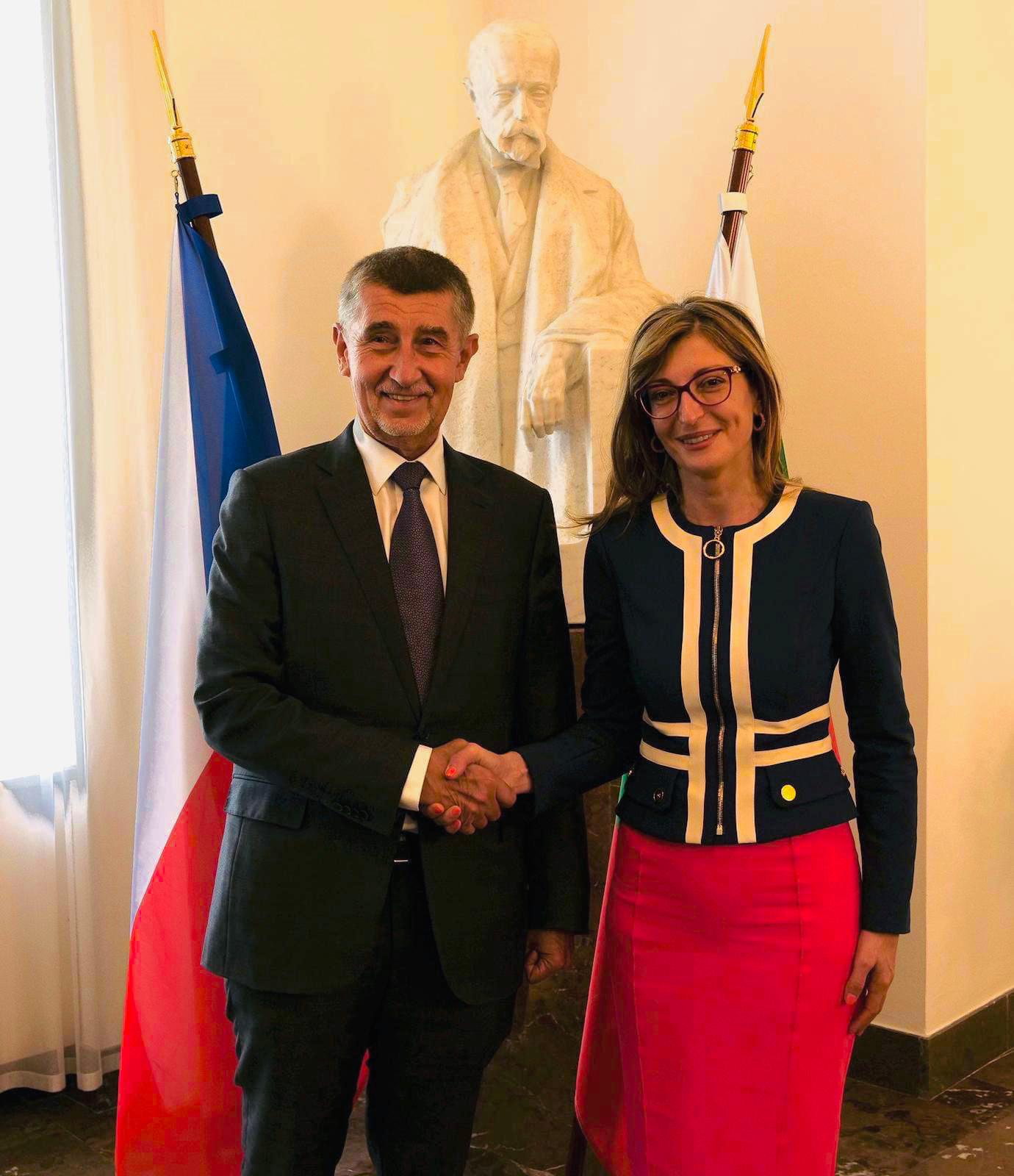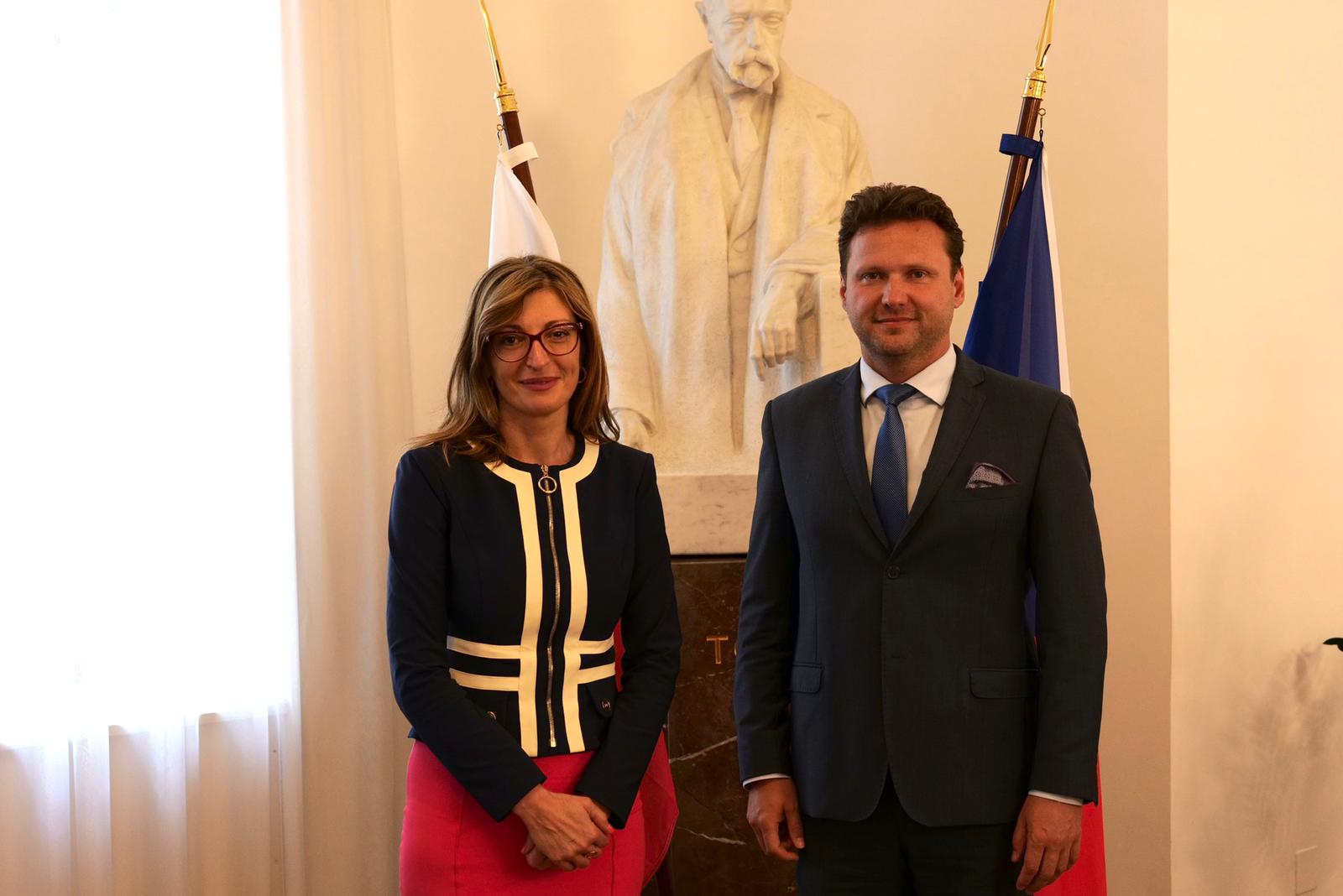Ekaterina Zaharieva in Prague: It is Important that We do not Permit Another Closure of Internal Borders in the EU
09 July 2020 News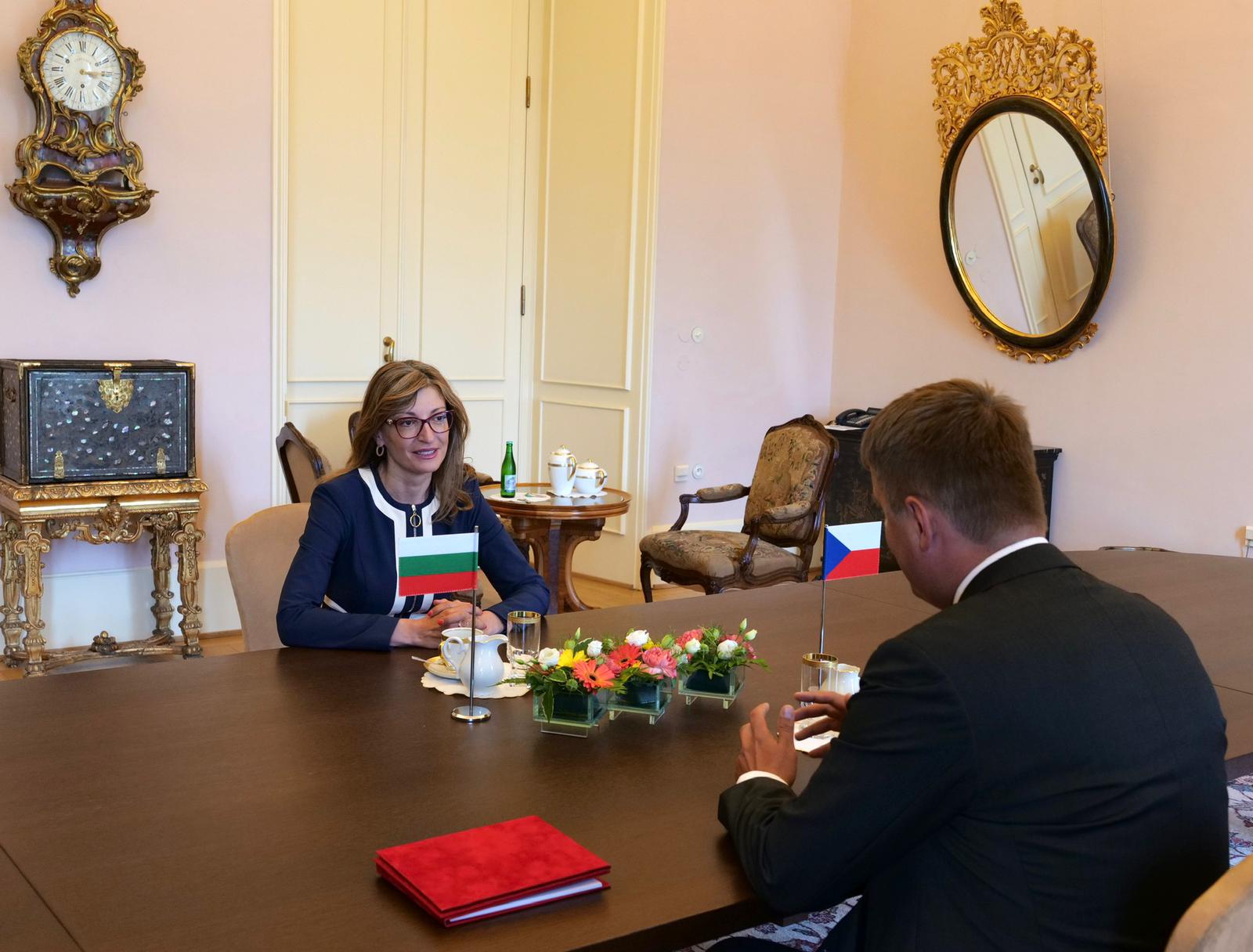
“The EU needs common and coordinated rules for countering the coronavirus, but we should not permit another closure of internal borders in the EU. We went through all this once and this led to thousands of people being stranded and to disruptions of the delivery of goods,” Deputy Prime Minister and Minister of Foreign Affairs Ekaterina Zaharieva said at a press conference in Prague. She was on an official visit there on the invitation of her counterpart Tomas Petricek. During the visit she also met Prime Minister Andrej Babis and Radek Vondracek, Speaker of the Chamber of Deputies.
“I arrived here on a flight from Burgas which had brought Czech tourists to Bulgaria. I would like to share that Bulgaria is open to all Czech tourists and that the authorities have adopted measures necessary to ensure their safety. I would further like to congratulate Czechia, which set an example for all other countries by opening its borders for free entry by EU nationals,” Zaharieva said. Regular charter flights between Prague and Burgas and Varna are starting on Friday.
“Bulgaria has tackled the epidemic very effectively and was one of the first countries with which we revived tourism,” Tomas Petricek said.
The two ministers also discussed ways to stimulate business development between Bulgaria and Czechia.
Trade between the two countries stood at EUR 1.56 billion in 2019, an increase of 14% as compared to a year earlier. Bulgaria’s exports to Czechia reached EUR 709.65 million, an increase of 17%, while Bulgaria’s imports amounted to EUR 850.75 million, i.e. they marked an 11% increase.
Zaharieva and Petricek agreed that there is significant potential for the further development of trade and economic relations, particularly in the areas of digital technology and innovation.
“Our positions on a number of issues coincide almost completely with those of Czechia. We are welcoming the EU draft budget for the next program cycle and, with regard to this, we hold the proposed balance between loans and grants in the new recovery instrument in high esteem.
It is of key importance that the cohesion policy should continue in its present form. It is a guarantee that the gap in the economic development of regions and countries will not grow wider.”
Bulgaria’s highest-ranking diplomat was received also by Prime Minister Andrej Babis, with whom she discussed the measures for combating the coronavirus and the proposed EU budget and recovery instrument.
Prime Minister Boyko Borisov attended the Friends of Cohesion meeting in Prague on 5 November 2019 on Babis’s invitation.
Zaharieva and Babis also discussed the protection of the EU’s external borders and agreed that Bulgaria was doing a great job. Zaharieva briefed Prime Minister Babis on Bulgaria’s objections to the Mobility Package.
Zaharieva also met Radek Vondracek, Speaker of the Chamber of Deputies, who praised Bulgaria for its adoption of adequate and balanced measures to combat the coronavirus.
Bulgaria and Czechia’s highest-ranking diplomats opened an exhibition entitled Bulgarian Czechs and presented an album of the same name. Information for the exhibition was collected by the BTA and the Archives State Agency.
The event formed part of a series marking the 100th anniversary of diplomatic relations with Czechia, which will be celebrated this year.
“The bond between Bulgaria and Czechia has been strong and long-lasting. A number of Czech nationals took part in building the modern Bulgarian state. One of them was Konstantin Jrecek, the author of the first academic work on Bulgarian history and Minister of Education after Bulgaria’s liberation. Artist Jan Mrkvicka’s paintings are a testament to the Bulgarian way of life and Bulgarian culture. One cannot but mention the Prosek brothers, the engineers and architects to whom Sofia largely owes its modern and authentic post-liberation appearance,” Minister Zaharieva said.
The Bulgarian Cultural Institute in Prague opened in 1948 and has actively popularized Bulgarian culture among the Czech public.
More than 15 000 Bulgarians live in Czechia, according to Czech authorities.

